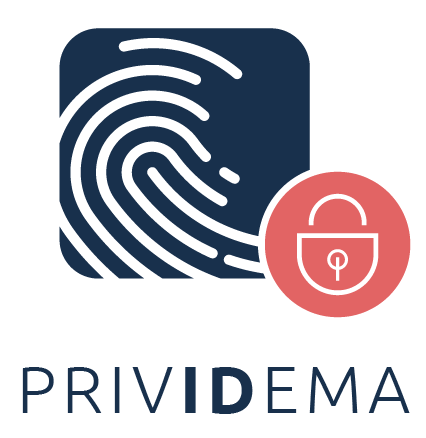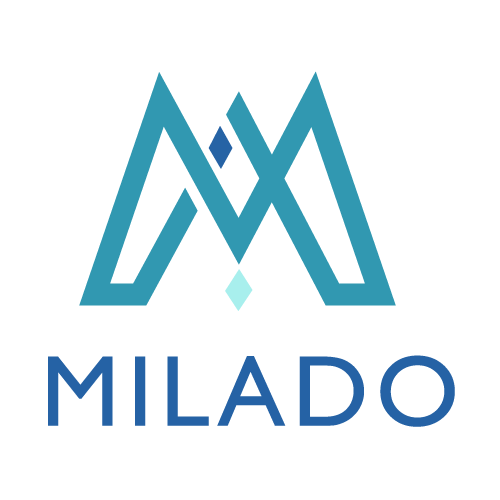Results & Downloads
Paper published: Accurate and Composable Noise Estimates for CKKS with Application to Exact HE Computation
The paper “Accurate and Composable Noise Estimates for CKKS with Application to Exact HE Computation” was published in IACR Communications in Cryptology. The authors are Jean‑Philippe Bossuat, Anamaria Costache, Christian Mouchet, Lea Nürnberger and Juan Ramón Troncoso‑Pastoriza. This publication, developed within the PRIVIDEMA project, advances precise and composable noise estimation techniques for CKKS, enabling more reliable exact homomorphic computations.
February 19, 2026

Paper published: Accurate and Composable Noise Estimates for CKKS with Application to Exact HE Computation
PhotoGeNIC Factsheet 05: Integration of Germanium Photonics on Silicon
The fifth issue of the PhotoGeNIC Factsheet series is now available. Download it to get an overview of the Integration of Germanium Photonics on Silicon.
February 12, 2026

PhotoGeNIC Factsheet 05: Integration of Germanium Photonics on Silicon
Scientific publication
The paper “Radio over Fiber with Cascaded Structure: Algorithm for Uplink Positioning” was published in IEEE Transactions on Wireless Communications. The authors are Dexin Kong, Diana Pamela Moya Osorio & Erik G. Larsson.
February 04, 2026

Scientific publication
Scientific publication
The paper “Distributed Deployment and Dual-Frequency Concepts to Strenghten Sub-THz Wireless Systems” was was published in IEEE Wireless Communications Magazine. The authors are Liesbet Van der Perre, Gilles Callebaut, Thomas Eriksson, Muris Sarajlic, Christian Fager, Fredrik Tufvesson, Buon Kiong Lau & Erik G. Larsson.
February 04, 2026

Scientific publication
D6.4 WP3, WP4, WP5 Demonstrator Platform
The ORSHIN Demonstrator platform showcases secure device development, focusing on secure inter- and intra-device communication, as proposed in the ORSHIN project. This document provides a high-level overview of the demonstrator, while detailed documentation is provided in the demonstrator repository.
January 28, 2026

D6.4 WP3, WP4, WP5 Demonstrator Platform
D5.3 Intra-device and inter-device secure communication prototypes
This document represents the user guide needed to setup and test the intra- and inter-devices communication prototypes.
January 28, 2026

D5.3 Intra-device and inter-device secure communication prototypes
D5.2 Report about essential and beyond-essential s&p guarantees for intra-device communication in restricted environments
This document conducts an examination of current protocols used to secure intra-device communication, including standard, proprietary, and literature-based approaches.
January 28, 2026

D5.2 Report about essential and beyond-essential s&p guarantees for intra-device communication in restricted environments
D5.1 Report about Essential and Beyond Essential S&P Guarantees for Inter-device Communication in Restricted Environments
In this deliverable we present the creation of BlueBrothers: three new inter-device communication protocols providing essential and beyond-essential S&P guarantees.
January 28, 2026

D5.1 Report about Essential and Beyond Essential S&P Guarantees for Inter-device Communication in Restricted Environments
D4.1 Report on security audit and testing
In this report we present two concepts of hardware acceleration for SW security testing, one for accelerating simulation of fault injection on Software pre-silicon and the other to support Logical Software testing such as Fuzzing or Symbolic execution.
January 28, 2026

D4.1 Report on security audit and testing
D3.2 Hardware implementations of cryptographic building blocks with formally verifiable protection against physical attacks
This deliverable describes hardware implementations of cryptographic building blocks, such as the PRINCE and AES S-boxes, with formally verifiable protection against physical side-channel attacks.
January 28, 2026

D3.2 Hardware implementations of cryptographic building blocks with formally verifiable protection against physical attacks
D3.1 RISC-V processor with countermeasures against microarchitectural attacks
This deliverable describes Proteus, a RISC-V processor designed for microarchitectural security research.
January 28, 2026

D3.1 RISC-V processor with countermeasures against microarchitectural attacks
Factsheet#4: Sub-THz systems coping with an elephant in the room: strengthen first, standardize next
Sub-THz systems have been advocated for their potential to deliver ultra-fast wireless connectivity, precise localization, and innovative sensing capabilities—thanks to the abundant bandwidth available at these frequencies. Yet, as highlighted in Factsheet #4, there remains a critical challenge: the “elephant in the room” is the fragility of sub-THz links. Unlike wireless systems operating below 10 GHz, both the signal propagation and hardware performance at sub-THz frequencies pose unique difficulties that cannot simply be predicted by scaling up existing technologies. These often-overlooked complications make the path toward reliable sub-THz deployment more complex than it may initially appear. In this blog post, we explore these challenges and discuss why strengthening the foundation of sub-THz technology must come before efforts to standardize.
January 14, 2026

Factsheet#4: Sub-THz systems coping with an elephant in the room: strengthen first, standardize next
Videos
ORSHIN - Demonstrator Video 04
As everyday devices grow more connected, securing them is crucial. The ORSHIN project aims to build open-source, resilient hardware and software for the Internet of Things (IoT). In this part of the project, the team focused secure Intra-device and inter-device communication prototypes. GitHub: https://github.com/ORSHIN Find out more about the ORSHIN project: https://horizon-orshin.eu/ The ORSHIN project has received funding from the European Union’s Horizon Europe research and innovation programme under grant agreement No. 101070008.
ORSHIN - Demonstrator Video 03
As everyday devices grow more connected, securing them is crucial. The ORSHIN project aims to build open-source, resilient hardware and software for the Internet of Things (IoT). In this part of the project, the team focused on pre-silicon security testing to uncover hardware and software vulnerabilities before devices reach the market. GitHub: https://github.com/ORSHIN Find out more about the ORSHIN project: https://horizon-orshin.eu/ The ORSHIN project has received funding from the European Union’s Horizon Europe research and innovation programme under grant agreement No. 101070008.
ORSHIN - Demonstrator Video 02
As everyday devices grow more connected, securing them is crucial. The ORSHIN project aims to build open-source, resilient hardware and software for the Internet of Things (IoT). In this part of the project, the team focused on protecting cryptographic hardware implementations from physical side-channel attacks. GitHub: https://github.com/ORSHIN Find out more about the ORSHIN project: https://horizon-orshin.eu/ The ORSHIN project has received funding from the European Union’s Horizon Europe research and innovation programme under grant agreement No. 101070008.
ORSHIN - Demonstrator Video 01
As everyday devices grow more connected, securing them is crucial. The ORSHIN project aims to build open-source, resilient hardware and software for the Internet of Things (IoT). To reach this goal security research on real hardware is essential, as the architectural simulators—often the only option due to proprietary designs—don’t reflect the full complexity of actual hardware. This limits the ability to evaluate security changes or observe real hardware behavior. To push security research on actual hardware, the ORSHIN team developed Proteus, an open-source RISC-V processor designed for rapid prototyping of security features. It includes tools for both security validation and performance testing. GitHub: https://github.com/ORSHIN Find out more about the ORSHIN project: https://horizon-orshin.eu/ The ORSHIN project has received funding from the European Union’s Horizon Europe research and innovation programme under grant agreement No. 101070008.
DYNAMO - Reda Yaich (SystemX)
Reda Yaich (SystemX) is talking at the DYNAMO meeting in France, about the DYNAMO Project. Find out more about the project: https://horizon-dynamo.eu/
DYNAMO - Antonis Voulgaridis (CERTH)
Antonis Voulgaridis is talking at the DYNAMO meeting in France, about the DYNAMO Project. Find out more about the project: https://horizon-dynamo.eu/
OPERANT | Interview with Alejandro Sancho
Interview with Alejandro Sancho (Utek) about the OPERANT project. Find out more about this project: https://operant-project.eu/ This video may be downloaded, shared, embedded and reposted across various platforms. The goal of OPERANT is to develop a cost-efficient, enduring, and autonomous distributed acoustic sensing network, providing vital information in adversarial terrains. Funded by the European Union. Views and opinions expressed are however those of the author(s) only and do not necessarily reflect those of the European Union or the European Defence Agency. Neither the European Union nor the granting authority can be held responsible for them.
OPERANT | Interview with Thierry Fredrich
Interview with Thierry Fredrich (Fraunhofer) about the OPERANT project. Find out more about this project: https://operant-project.eu/ This video may be downloaded, shared, embedded and reposted across various platforms. The goal of OPERANT is to develop a cost-efficient, enduring, and autonomous distributed acoustic sensing network, providing vital information in adversarial terrains. Funded by the European Union. Views and opinions expressed are however those of the author(s) only and do not necessarily reflect those of the European Union or the European Defence Agency. Neither the European Union nor the granting authority can be held responsible for them.
OPERANT | Interview with Frank Woodcock
Interview with Frank Woodcock (Zippermast) about the OPERANT project. Find out more about this project: https://operant-project.eu/ This video may be downloaded, shared, embedded and reposted across various platforms. The goal of OPERANT is to develop a cost-efficient, enduring, and autonomous distributed acoustic sensing network, providing vital information in adversarial terrains. Funded by the European Union. Views and opinions expressed are however those of the author(s) only and do not necessarily reflect those of the European Union or the European Defence Agency. Neither the European Union nor the granting authority can be held responsible for them.
OPERANT | Interview with César Martínez
Interview with César Martínez (Utek) about the OPERANT project. Find out more about this project: https://operant-project.eu/ This video may be downloaded, shared, embedded and reposted across various platforms. The goal of OPERANT is to develop a cost-efficient, enduring, and autonomous distributed acoustic sensing network, providing vital information in adversarial terrains. Funded by the European Union. Views and opinions expressed are however those of the author(s) only and do not necessarily reflect those of the European Union or the European Defence Agency. Neither the European Union nor the granting authority can be held responsible for them.
CONNECT - Trust Assessment Framework
The Trust Assessment Framework (TAF) is a Framework that continuously evaluates trust relationships between system entities to ensure reliable and safe data utilization. By assessing the trustworthiness of each component in real time, it helps detect compromised data—key to ensuring vehicle safety.
CONNECT - Use Case 01 - Intersection Movement Assistance (IMA) & Misbehavior Detection (MBD)
Intersection Movement Assistance is an application in V2X ecosystems that can help coordinate vehicles at intersections. Based on the exchange of critical real-time data from the involved vehicles, it can detect and evaluate probable crash zones in time. But what happens in case of potential attack risks in the transmitted messages? The focus of the first CONNECT use case is to demonstrate CONNECT’s trust assessment framework’s ability to provide accurate trustworthiness assessments of CPM messages. Find our more about CONNECT: horizon-connect.eu The CONNECT project project has received funding from the European Union’s Horizon Europe research and innovation programme under grant agreement No. 101069688. Funded by the European Union. Views and opinions expressed are however those of the author(s) only and do not necessarily reflect those of the European Union or the European Commission-EU. Neither the European Union nor the granting authority can be held responsible for them.
CONNECT - Use Case 03 - Slow Moving Traffic Detection (SMTD)
Slow-Moving Traffic Detection (SMTD), developed in cooperation by Stellantis-CRF and Politecnico di Torino, enhances road safety and traffic efficiency using V2X communication. Vehicles share real-time sensor data about slow-moving traffic through a Multi-access Edge Computing (MEC) server, which acts as a central hub at the edge of the network, facilitating real-time data analysis and decision-making. The focus of this CONNECT use case is to demonstrate the ability of CONNECT’s combined solutions of Misbehavior Detection (MBD) and the Trust Assessment Framework (TAF) to continuously identify and report suspicious data, preventing the dissemination of harmful or erroneous information within the network. Find our more about CONNECT: horizon-connect.eu The CONNECT project project has received funding from the European Union’s Horizon Europe research and innovation programme under grant agreement No. 101069688. Funded by the European Union. Views and opinions expressed are however those of the author(s) only and do not necessarily reflect those of the European Union or the European Commission-EU. Neither the European Union nor the granting authority can be held responsible for them.
CONNECT - Use Case 02 - Cooperative Adaptive Cruise Control (C-ACC)
Cooperative Adaptive Cruise Control (C-ACC) is an in-vehicle driver assistance system designed to synchronize and coordinate traffic. By exchanging critical real-time vehicle data—such as speed, acceleration, and position—it can automatically calculate and adjust the vehicle's speed to maintain a safe distance from others. The focus of the second CONNECT use case is to ensure the safe operation of C-ACC by assessing trust at runtime and responding to trustworthiness changes with appropriate actions. Find our more about CONNECT: horizon-connect.eu The CONNECT project project has received funding from the European Union’s Horizon Europe research and innovation programme under grant agreement No. 101069688. Funded by the European Union. Views and opinions expressed are however those of the author(s) only and do not necessarily reflect those of the European Union or the European Commission-EU. Neither the European Union nor the granting authority can be held responsible for them.
PRIVIDEMA - Mariya Georgieva (Technical Lead)
Mariya Georgieva (Technical Lead) is talking at the Kick-Off / technichal meeting in Paris about the PRIVIDEMA Project. Find out more about the project: https://prividema.eu/ Funded by the European Union under Grant Agreement No. 101167964. Views and opinions expressed are however those of the author(s) only and do not necessarily reflect those of the European Union or the European Cybersecurity Industrial, Technology and Research Competence Centre (ECCC). Neither the European Union nor the granting authority ECCC can be held responsible for them.
Podcasts
iPC (4) H2020 Project: About why the future paediatric cancer treatment is in personalization
In this episode we welcome Davide Cirillo. He represents the Barcelona Supercomputing Center, a partner in iPC which, by the way, stands for Indivualized Peadiatric Cure. We talk about how explainable AI and machine learning is the key to tailor treatments for kids while minimizing the risks. The iPC project has received funding from the European Union’s Horizon 2020 research and innovation programme under grant agreement No. 826121.
iPC (4) H2020 Project: About why the future paediatric cancer treatment is in personalization
iPC (4) H2020 Project: About why the future paediatric cancer treatment is in personalization
iPC (3) H2020 Project: How algorithms can improve treatment for children with cancer
In this episode we talk with Pieter Mestdagh, principal investigator at the Cancer Research Insitute Ghent, who is a project partner in iPC. He shares his teams methods with us for a better understanding of their motives and how algorithms can improve effective treatment for children with cancer. The iPC project has received funding from the European Union’s Horizon 2020 research and innovation programme under grant agreement No. 826121.
iPC (3) H2020 Project: How algorithms can improve treatment for children with cancer
iPC (3) H2020 Project: How algorithms can improve treatment for children with cancer
REINDEER (2) H2020 Project: A closer look at RadioWeaves Technology and how it might be used
In this Episode, we will speak with Erik Larsson, Professor and Head of the Division for Communication Systems in the Department of Electrical Engineering at Linköping University, about how the REINDEER H2020 Project can help facilitate the idea of embedded antennas by using RadioWeaves technology. The REINDEER project has received funding from the European Union’s Horizon 2020 research and innovation programme under grant agreement No. 101013425.
REINDEER (2) H2020 Project: A closer look at RadioWeaves Technology and how it might be used
REINDEER (2) H2020 Project: A closer look at RadioWeaves Technology and how it might be used
Ethics and Technology (6) – a Prerequisite for European Research: Engineering and Technology
In this episode we welcome Rebecca Roache, a British philosopher and Senior Lecturer at Royal Holloway, University of London and Jonathan Seglow, Associate Professor in the Department of Politics, International Relations and Philosophy also at at Royal Holloway. The EXFILES project has received funding from the European Union’s Horizon 2020 research and innovation programme under grant agreement No. 883156
Ethics and Technology (6) – a Prerequisite for European Research: Engineering and Technology
Ethics and Technology (6) – a Prerequisite for European Research: Engineering and Technology
EXFILES (5) H2020 Project: About Microscopic Views and the Hardware Approach
In this episode, we continue our in-depth look at the EXFILES project. Today we speak with Olivier Thomas, a partner in EXFILES, he along with his team of 10 cyber security experts are responsible for hardware solutions in EXFILES. He shares his thoughts on the project with us and how the knowledge derived from this project can help in training future generations of cyber security experts. The EXFILES project has received funding from the European Union’s Horizon 2020 research and innovation programme under grant agreement No. 883156
EXFILES (5) H2020 Project: About Microscopic Views and the Hardware Approach
EXFILES (5) H2020 Project: About Microscopic Views and the Hardware Approach
EXFILES (4) H2020 Project: An Inside View from an LEA Partner
In this episode, we look at the EXFILES project once again. Today we speak with Nicolas from the National Forensic Lab for the French Gendarmerie. He talks about the challenge of extracting forensic evidence from locked phones and how the EXFILES project can help LEA's to overcome this. The EXFILES project has received funding from the European Union’s Horizon 2020 research and innovation programme under grant agreement No. 883156
EXFILES (4) H2020 Project: An Inside View from an LEA Partner
EXFILES (4) H2020 Project: An Inside View from an LEA Partner
EXFILES (3) H2020 Project: A Look from the Inside
In this episode, we look at the EXFILES project once again. We speak with project partner Renaud Feil from Synacktiv in Paris about developing methods to access locked phones. There is no easy solution but in EXFILES, partners across Europe have resolved to make inroads to this challenging aspect of cybersecurity. The EXFILES project has received funding from the European Union’s Horizon 2020 research and innovation programme under grant agreement No. 883156
EXFILES (3) H2020 Project: A Look from the Inside
EXFILES (3) H2020 Project: A Look from the Inside
REALHOLO (1) H2020 Project: An Introduction
In this episode, we introduce the REALHOLO (https://realholo.eu) project. Partners Hagen Stolle and Johannes Pleikies from SeeReal Technologies speak about the goals and challenges in this H2020 project which aims to bring holography to the forefront by prototyping practical applications. This project has received funding from the European Union’s Horizon 2020 research and innovation programme under grant agreement No. 101014977. This project is an initiative of the Photonics Public Private Partnership.
REALHOLO (1) H2020 Project: An Introduction
REALHOLO (1) H2020 Project: An Introduction
DECODER (4) H2020 Project: Weighing in with The UPV
Three partners from the Universitat Politècnica de València discuss their particular roles in the DECODER (https://www.decoder-project.eu) H2020 project. We speak with Tanja Ernestina Vos, Borja Davó Gelardo and Nacho Mansanet Benavent about the project goals and progress as the consortium reaches completion of their efforts. The DECODER project has received funding from the European Union's Horizon 2020 research and innovation programme under grant agreement number 824231.
DECODER (4) H2020 Project: Weighing in with The UPV
DECODER (4) H2020 Project: Weighing in with The UPV
DECODER (3) H2020 Project: Open source software development solutions
In this episode we speak with Olivier Bouzereau from OW2 about the DECODER (https://www.decoder-project.eu) project and how their commitment to open source technologies will make their work available to developers around the world. The DECODER project has received funding from the European Union's Horizon 2020 research and innovation programme under grant agreement number 824231.
DECODER (3) H2020 Project: Open source software development solutions
DECODER (3) H2020 Project: Open source software development solutions
SERENA (5) H2020 Project: Signal Processing
SERENA (https://serena-h2020.eu) partners are exploring the use of high frequencies for data delivery. Using gallium nitride on silicon as a means to develop high performance millimeter-wave active antenna systems, at a commercially viable price-point while remaining energy efficient is at the heart of SERENA. In this episode we speak with SERENA partners Giuseppe Caire and Thomas Kuehne from the Technische Universität Berlin. The SERENA project has received funding from the European Union’s Horizon 2020 research and innovation programme under grant agreement No 779305.
SERENA (5) H2020 Project: Signal Processing
SERENA (5) H2020 Project: Signal Processing
Car2TERA (5) H2020 Project: Focus on the Demonstrators
Today we zero in on the circuits used in the demonstrators for the Car2TERA project. Herbert Zirath from Chalmers University of Technology talks about some of the challenges involved and how his team has dealt with them. The Car2TERA project has received funding from the European Union’s Horizon 2020 research and innovation programme under grant agreement No. 824962.
Car2TERA (5) H2020 Project: Focus on the Demonstrators
Car2TERA (5) H2020 Project: Focus on the Demonstrators
Car2TERA (4) H2020 Project: Checking in with Jonas Hansryd & Yinggang Li from Ericsson
In this episode we speak with with Jonas Hansryd & Yinggang Li from Ericsson about the progress of the Car2TERA (https://car2tera.eu) project. They share some details about why this project is so important for the future of automobiles and what Ericsson is doing to push this effort forward. The Car2TERA project has received funding from the European Union’s Horizon 2020 research and innovation programme under grant agreement No. 824962.
Car2TERA (4) H2020 Project: Checking in with Jonas Hansryd & Yinggang Li from Ericsson
Car2TERA (4) H2020 Project: Checking in with Jonas Hansryd & Yinggang Li from Ericsson
Ethics and Technology (5) – a Prerequisite for European Research: Engineering and Technology
In this episode we speak with Elisabeth Oswald professor from the department of artificial intelligence and cybersecurity at The University of Klagenfurt (https://www.aau.at/en/) about the ethics considerations in the world of education and research.
Ethics and Technology (5) – a Prerequisite for European Research: Engineering and Technology
Ethics and Technology (5) – a Prerequisite for European Research: Engineering and Technology
REINDEER (1) H2020 Project: Using RadioWeaves for smart connect-compute platform
In this episode we speak with Liesbet Van der Perre, Technology Lead in the REINDEER (https://reindeer-project.eu) project. She informs us about the overarching goals in REINDEER and explains how the project will benefits residents of the EU and the EU itself. The REINDEER project has received funding from the European Union’s Horizon 2020 research and innovation programme under grant agreement No. 101013425.
REINDEER (1) H2020 Project: Using RadioWeaves for smart connect-compute platform
REINDEER (1) H2020 Project: Using RadioWeaves for smart connect-compute platform
















